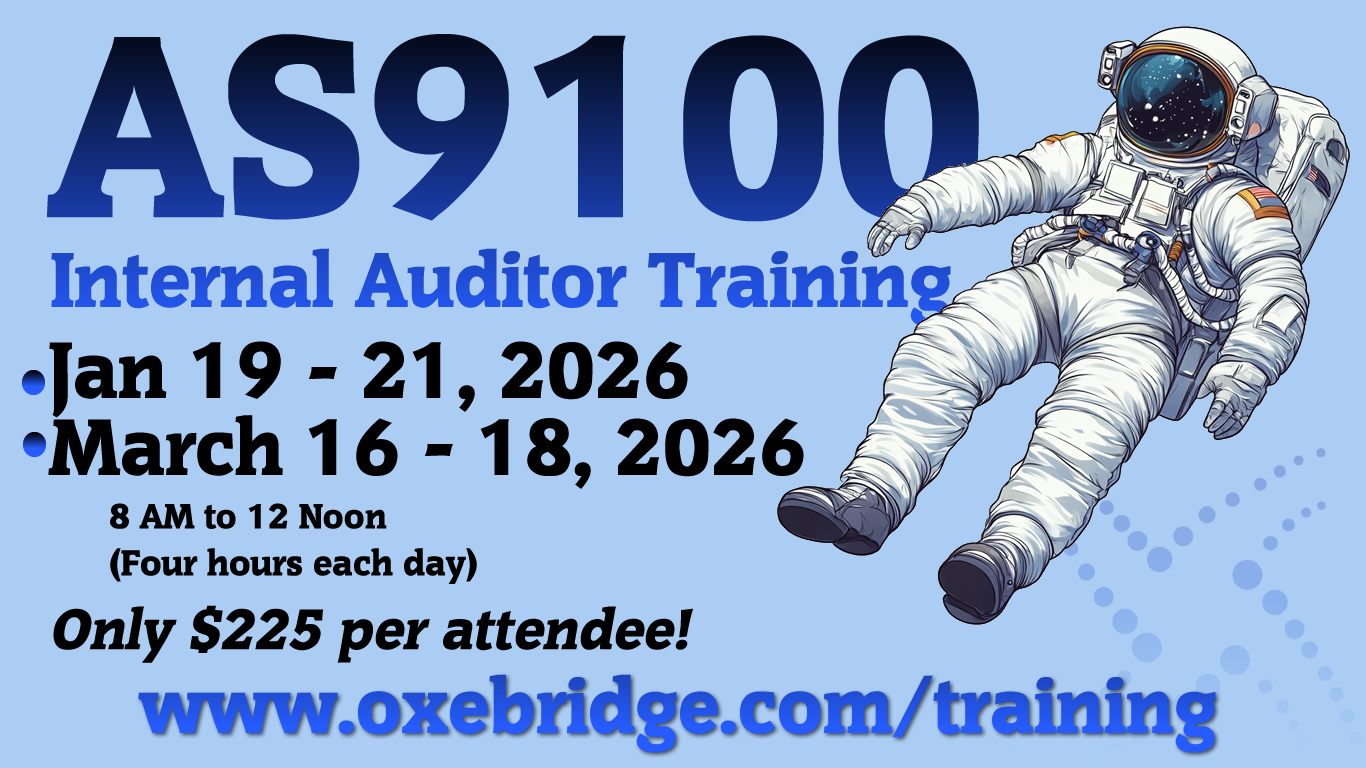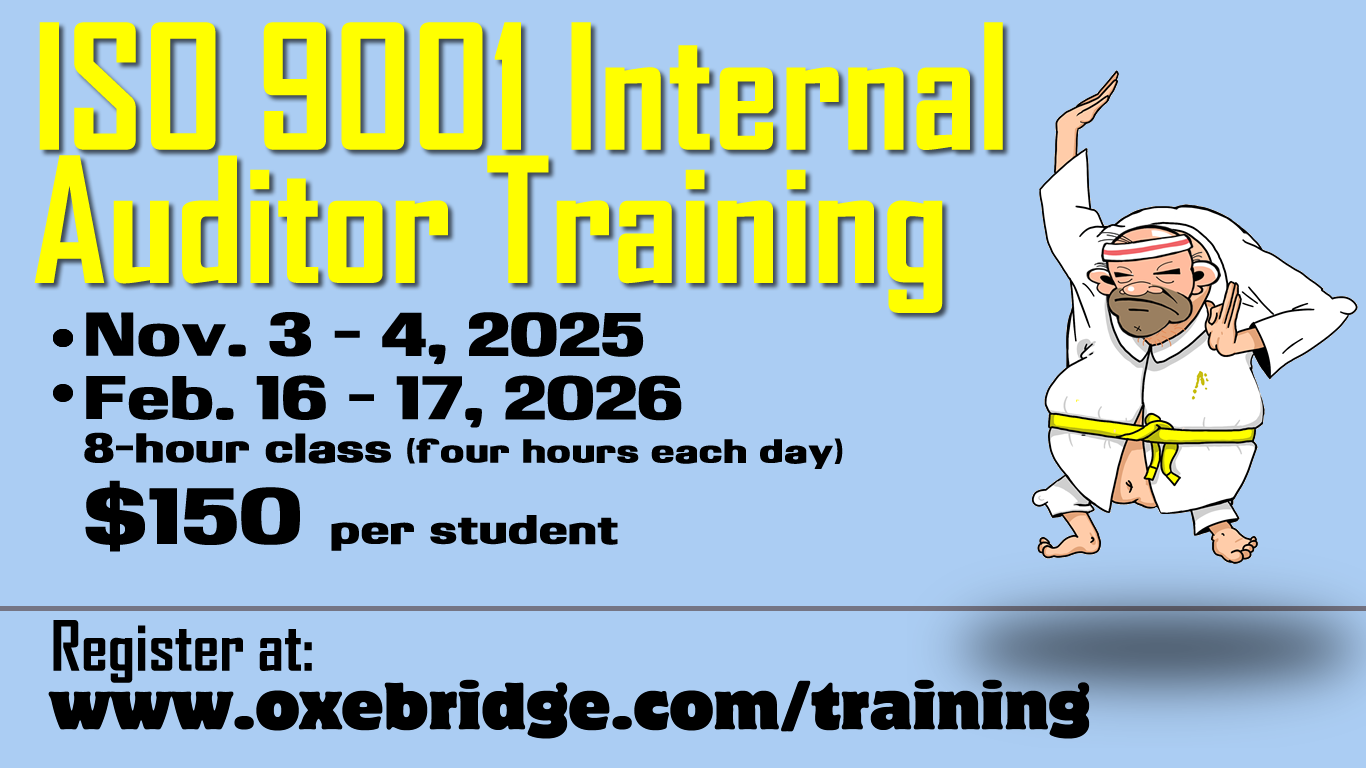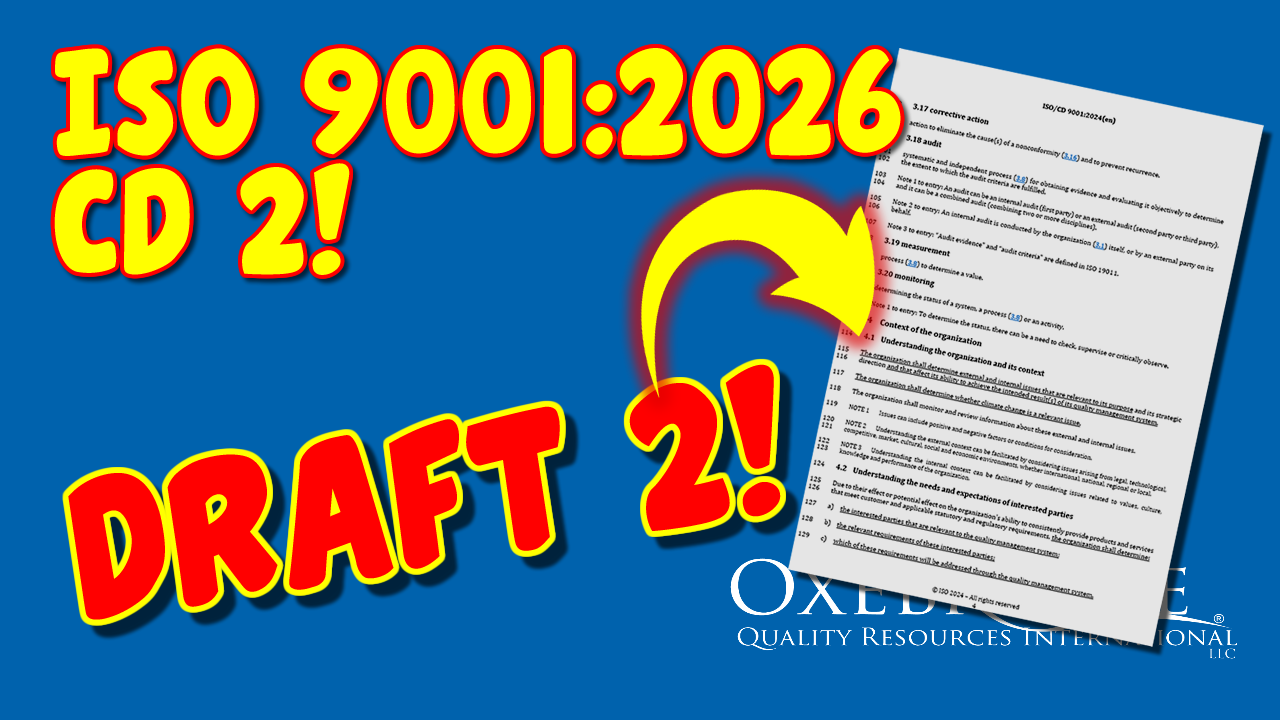Tampa FL — The IAQG has changed the deadline requirements for certification to revision C of the AS9100 standard, which had been set as July 1, 2012. The new change still targets that date, but companies that do not meet it will not have their AS9100 certifications withdrawn, but instead just temporarily suspended.
According to IAQG representative Sidney Vianna:
• The 01 July 2012 target remains in place but the suspension process will be utilized in lieu of withdrawal.
• The previous revision of the 9100/9110/9120 standards will not be cancelled on 01 July 2012. Cancellation will occur in 2013.
• Certified organizations that have not had their on site audit activity to the 9100/9110/9120:2009 AQMS standards completed by 01 July 2012 shall have their certificate suspended. Suspension status will remain in effect until transition is completed or the certificate is withdrawn.
• There will be no 9100/9110/9120:2009 transition audits after 01 Jan 2013. Failure to complete the on site audit activity to the 9100/9110/9120:2009 AQMS standards by 01 Jan 2013 shall have their certificate withdrawn. Should an organization’s certificate be withdrawn then the initial certification process must be completed before a new certificate can be issued.
It is important to realize that we STILL have the July1st 2012 deadline. What has changed is the ramification of not having completed the transition audit by such date. If a registrant fails to complete the on-site (part of the) audit by such date, they must be automatically have their certificate suspended in OASIS. The implications of having a suspended certificate in OASIS will depend on the registrant’s customers, who may suspend new business opportunities with the supplier, put them on a probationary status, etc.
“Suspension” is a temporary halt to a company’s certification, pending resolution of the particular problem. It is lifted as soon as the particular problem is resolved with the Certification Body, and carries far less difficulty in correcting than “withdrawal.”
A “withdrawal” is the total removal of a company’s certification, which can only be re-instituted by way of negotiation with a Certification Body, correction of existing problems, and then, typically, undergoing a completely new registration audit.
When asked if the delay was prompted by the IAQG’s own delays in releasing the official audit tables which define the minimum number of days required by CB’s when performing AS9100 certification audits, Mr. Vianna responded:
I believe that the IAQG came to a realization that the pace of certificates being transitioned to the 2009 Edition of the standards was not in line with the expectations. Also, from what I understood, in some countries, the auditor transition process was impacted by unforeseen delays in translating the material in certain languages.
Oxebridge advises companies to continue to pursue the July deadline regardless, but not to be too concerned if a suspension is issued. Suspended companies should work quickly to resolve the issues with their registrar to avoid full withdrawal.
Christopher Paris is the founder and VP Operations of Oxebridge. He has over 35 years’ experience implementing ISO 9001 and AS9100 systems, and helps establish certification and accreditation bodies with the ISO 17000 series. He is a vocal advocate for the development and use of standards from the point of view of actual users. He is the writer and artist of THE AUDITOR comic strip, and is currently writing the DR. CUBA pulp novel series. Visit www.drcuba.world







